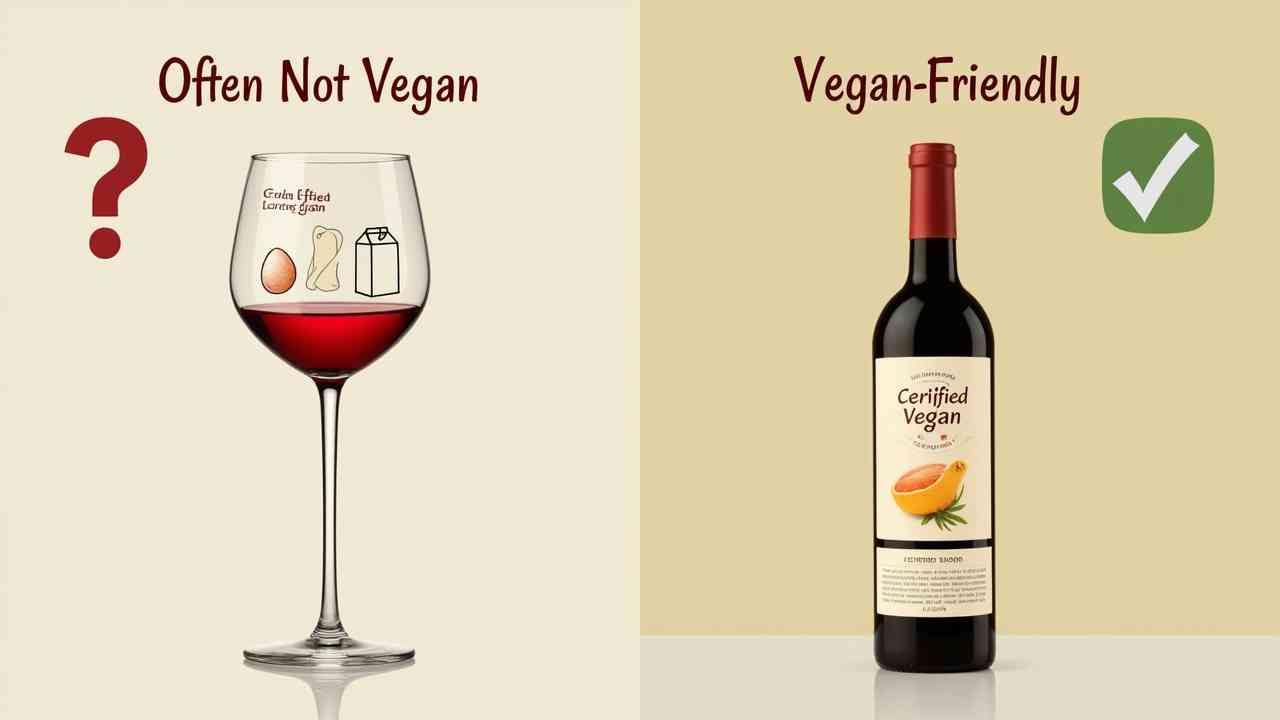
🍷 Is Wine Vegan? The Surprising Answer to What's in Your Glass
🍷 Is Wine Vegan? The Surprising Truth About What's in Your Glass 🍷
For many, wine is a staple of a sophisticated meal or a relaxing evening. It is made from grapes, a fruit, so it seems logical that it would be a vegan-friendly beverage. This leads to a very common question for anyone adopting a plant-based lifestyle: is wine vegan?
The surprising answer is: not always. While the base ingredient is perfectly vegan, a hidden part of the traditional winemaking process often uses animal-derived products. This can make many popular wines unsuitable for a strict vegan diet.
This guide will explain this little-known secret of the wine world. We will also show you how to easily find a delicious wine that is 100% vegan. Let's clear up the confusion in your glass! ✅
🤔 Why Isn't All Wine Vegan? The 'Fining' Process Explained
The issue does not come from the grapes. It comes from a process called fining. After fermentation, young wine is often cloudy. It is full of tiny, suspended particles like proteins, tannins, and dead yeast cells. While these are harmless, most consumers expect a crystal-clear wine.
Fining is the process of adding a clarifying agent to the wine. This agent binds to the unwanted particles, making them clump together. These larger clumps then sink to the bottom of the barrel, where they can be easily filtered out. The problem is that many of the most traditional and effective fining agents are derived from animals.
What are the common non-vegan fining agents?
- Isinglass: A type of collagen derived from the dried swim bladders of fish.
- Casein: A protein found in milk.
- Albumin: A protein derived from egg whites.
- Gelatin: A protein derived from animal bones and connective tissues.
While these agents are removed from the final product, tiny traces can remain. More importantly for strict vegans, the use of these animal products in the process is enough to make the wine non-vegan.
✅ How Can You Find Vegan-Friendly Wine?
The great news is that awareness is growing, and the wine industry is changing! Many winemakers are now using animal-friendly alternatives or simply allowing their wines to self-clarify over time (a process known as 'unfined' or 'unfiltered').
What should you look for on the label?
1. Look for a "Certified Vegan" Logo: This is the easiest and most reliable way. Many bottles are now clearly labeled with a vegan certification logo. This is your guarantee.
2. Check for "Unfined" or "Unfiltered": If a wine is labeled this way, it means no fining agents were used at all. These wines are almost always vegan.
3. Use Online Resources: The website Barnivore is a fantastic and comprehensive directory. You can search for almost any brand of wine, beer, or liquor to see its vegan status.
Many Turkish wineries ("şarap evi"), especially those in prominent regions, are now embracing these modern techniques. Enjoying a glass of local wine is a perfect way to celebrate the beautiful autumn season here in Bursa. Just be sure to check the label or ask the producer. 🍂